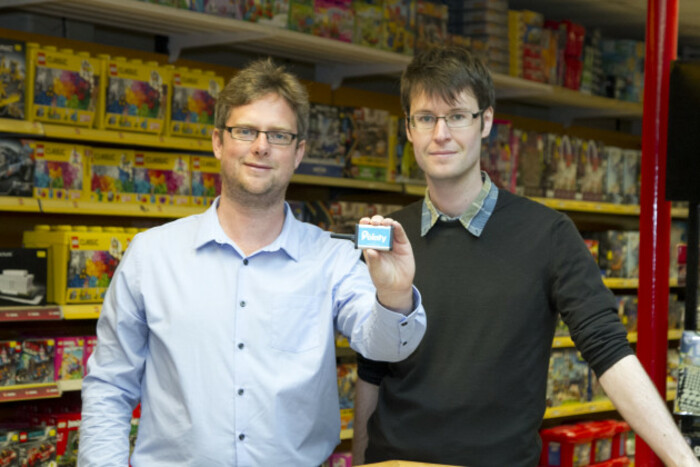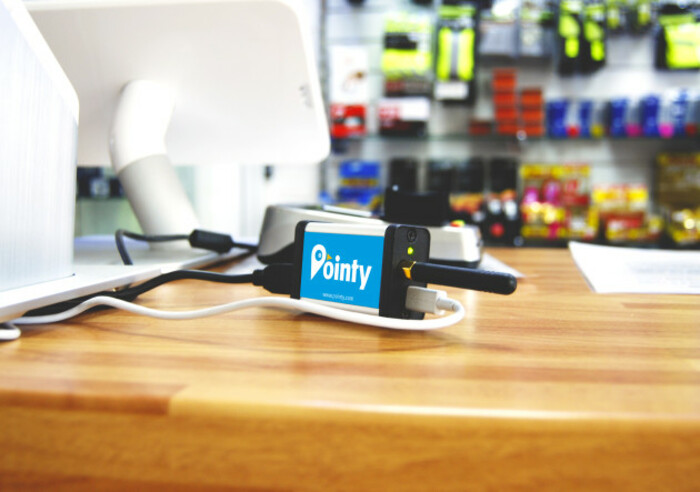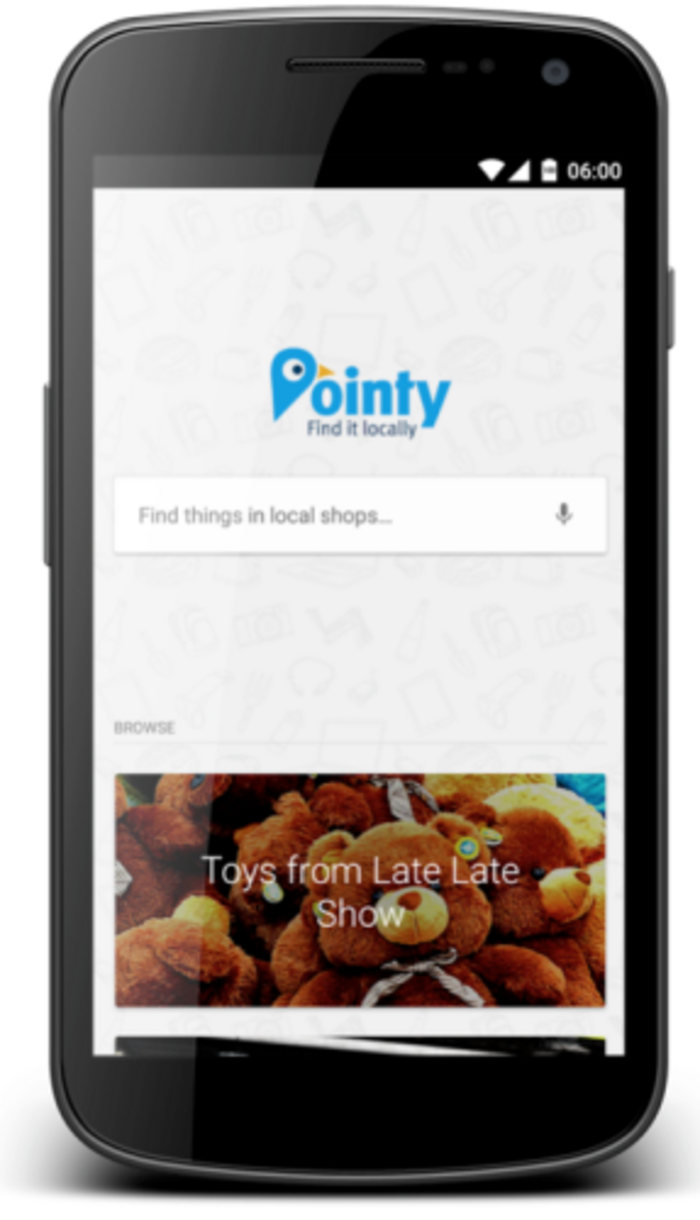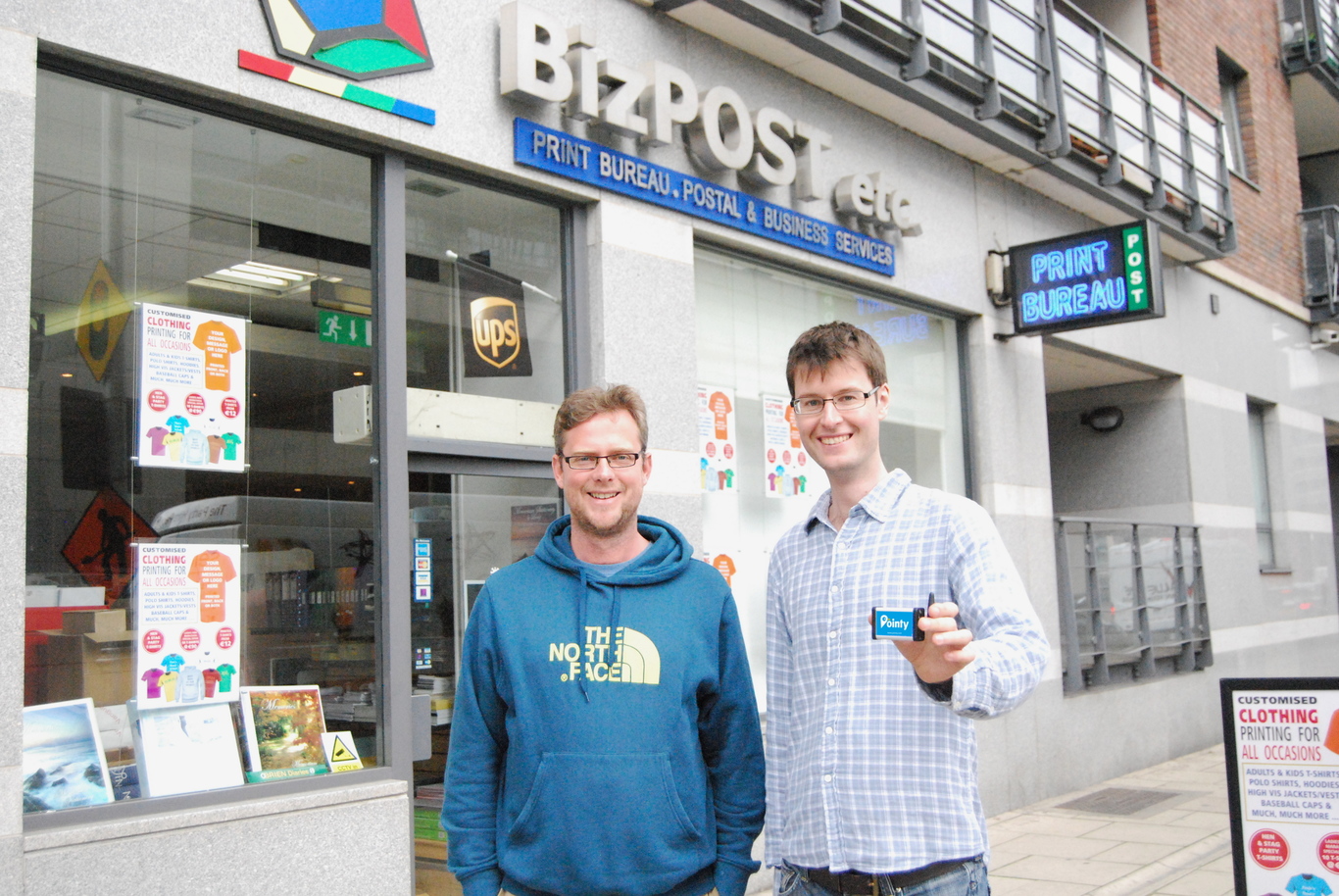'There was a period after we sold to Google when I thought I'd never do that again'
After selling his first startup, Plink, this tech entrepreneur is back with a retail game-changer.
I HAD NEVER really considered setting up my own company when I was doing my undergraduate degree.
But for some reason, when I was doing my PhD in mobile robotics, I started thinking about it. The iPhone and the first Android phones were just coming out, and we had some very nice technology developed in the lab.
There were decades of academic research we were standing on top of, and it was just getting to the point where you could use it in the real world.
I initially tried to licence the technology for my first company, Plink – which developed tech you could use to take a picture of something to find out more about it – to other businesses.
That was a frustrating process, so eventually I got impatient and I thought, ‘Why don’t I just do this myself?’ I saw other people starting companies and figured if they can do it, I can too. I really didn’t want the technology to sit on a shelf and gather dust.
I remember sitting in a talk by Geoff Hinton in 2009, which contained the first glimmers of what became the deep-learning revolution. I was an early convert and incredibly excited about where the technology could go. It felt like there was something huge to be unlocked.
Back then, the wider world hadn’t yet started to pay attention, so one of the reasons I started Plink was to do something commercial with machine learning to help things along.
Now it looks like I needn’t have worried. Today machine learning, AI and robotics are the hottest trends in Silicon Valley, but in 2009, this was all sitting in research labs.
I definitely wasn’t dreaming of selling my company to Google. I just wanted people to experience what the latest machine-learning research was starting to make possible.
 Charles Bibby (left) and Mark Cummins
Charles Bibby (left) and Mark Cummins
Building the business
We had some very good technology, but what we didn’t have were all the other parts of the business.
There was just the two of us working on Plink at the start. We went to pitch at an event called Seedcamp in London, which was a crucial moment for us because it was our first introduction to the startup world.
We didn’t really know what we were doing, what the expectations were, and we were way off base on all sorts of basics about how to run a business and raise funds.
Our first pitch at Seedcamp was a transformative moment. We met a lot of angel investors and other company founders, which gave us a much better sense of how the startup world operated.
We were taken aback by how generous the startup community was; there’s a strong pay-it-forward mentality. People aren’t expecting something in return – they were helped and now they’re helping you.
People we really had no business spending time with took hours giving us advice. The founder of Spotify gave us an hour, and LinkedIn founder Reid Hoffman spent a couple of hours with us.
So that was the start and one of the crucial things that cemented us into a company.
I still have some of our original pitch-deck slides and, looking back now, we were so raw. But the technology was very good and we had a very good tech demo, which is what carried us.
We built an app around the tech and launched that, and luckily it was very popular. In the first six weeks we got 50,000 downloads, which at the time was very good.
We were a featured app on the Android market over Christmas, so when everyone was unwrapping their new phones, we were one of the 10 apps they were downloading.
We were starting to develop a real company when Google came knocking and saw the tech was something they could use internally on a much bigger scale. Long story short, Google got to know us and bought the company, but that process took a while.
We could bring something to the table that would enhance what Google already had, and they had the resources to take things to scale faster than we could possibly do.
So a deal made sense, and ultimately they made us an offer, there was a negotiation process and that was it.
From Google back to startups
I think there was a period after we sold the company that I thought I would never do that again. I joined Google as part of the deal for Plink, but after three years there I felt like I wanted to start another company.
I was surprised to find myself starting my first company, and I was surprised again to find myself starting my second. But I found I still had an entrepreneurial itch to scratch.
The first company had been a pretty short journey as startups go. From start to finish, it was no more than 18 months and we were quite a small company when we were bought. I wanted to try building something bigger second time around.
It wasn’t hard to find ideas. Entrepreneurs always have many more ideas than time to do them. I’d played with many ideas over the years, and one of them just rose to the top and wouldn’t go away.
That was the idea of Pointy – a simple way to get small shops online. It all started by talking with a friend who had been drinking a nice craft beer at a party a few days earlier. He loved the beer, but after the party he couldn’t find anywhere that sold it.
It seemed so strange to me that you can search the entire internet in half a second, but there’s no easy way to find something that is for sale probably within 500 metres of you. So I started thinking about ways to solve that.

Learn from others mistakes
One of the things that has helped me the most with the second company was the little bit of angel investing I did after we sold Plink.
I used the proceeds of the sale to invest in maybe a dozen startups, which let me see the investment process from both sides of the table.
It taught me how to navigate the process and what are reasonable terms – it’s probably the most important thing I know now compared to the first time around.
And not only do you get to see the investment process, but you also get to see internal company updates. Every couple of months, the companies I’ve invested in send me updates on what’s happening and you get to see a lot of the patterns.
You can pick out how companies did well, and the mistakes made by those that did badly.
However, with any company, even second time around, you’re constantly making mistakes. I suppose a mistake we were saved from with Plink was that initially I tried to license the technology rather than do a startup.
That would definitely have undervalued the technology massively – we were saved from that mistake just by luck.
Finding a co-founder
My co-founder Charles Bibby and I did our PhDs together in Oxford, so we know each other a long time. But after our PhD we did separate things and lost touch for a while.
I worked for Google and he worked in the marine electronics industry and did part of the security system for the London Olympics in 2012.
He always had this dream to go sailing, so whilst running a consultancy firm he went on a two-year trip around the Mediterranean – proposing to his girlfriend on the way out of the harbour.
I knew Charles was on this trip so I never considered asking him to be co-founder. I thought there is no way he’s available even though he would be an amazing person to work with.
But I wanted to get his advice on someone good I could hire as a hardware engineer, so I emailed him and he got really excited about the idea and wanted to join the company.
Charles wanted to figure out the tech feasibility first, so he got his equipment – including soldering irons and oscilloscopes – down to Ibiza carried by his father-in-law on EasyJet.
He made the first version of the Pointy box on a chart table in his boat while it was bobbing around at anchor. At that point they made the decision to turn the boat around and sail back to Ireland. He still lives on his boat in Malahide.

Milestones
Getting into our first shop was one of the biggest milestones for the company.
I walked in off the street into Donnybrook Bikes and said, “You don’t know me, but I have this little device and I want to plug it into your shop, will you do it?” They agreed, which was amazing.
We actually have a party in the company every time the number of stores using our hardware doubles, and we’ve just passed our 10th doubling, so we’re in 1,024 shops.
We have a really good footprint in Ireland and now also in the USA. We’re a tiny way towards the goal though. There are about two million stores between the US and Europe, and we want all of them to use Pointy. We’re working on it.
Mark Cummins is the co-founder of Pointy. This article was written in conversation with Killian Woods as part of a series on business mistakes and what can be learned from them.
If you want to share your opinion, advice or story, email opinion@fora.ie.






